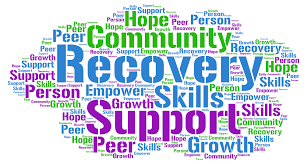💜 Your Guide to Helping (Not Hurting) Someone Healing from Addiction
When people talk about recovery, they usually focus on the person quitting.
The addict getting clean.
The addict “fixing themselves.”
But the truth is — addiction doesn’t just break one person. It ripples through everyone who loves them, too. And recovery? Recovery needs you, too.
If you love someone who’s fighting their way back from addiction, you know this journey is complicated. You might wonder what to say. You might feel helpless, angry, confused, or terrified you’ll do or say the wrong thing. You’re not alone — and your support matters more than you know.
I’ve been in recovery from methamphetamine for nearly four years now. I’ve relapsed before. I’ve had people judge me, leave me, or accuse me of being “just another druggie.” And I’ve had people love me so fiercely and patiently that I started to believe maybe I could be more than my worst decisions.
So if you’ve ever asked: “How do I really help them? How do I not make it worse?”
This is for you. 💜
🧠 Recovery Is Not a Straight Line
First, let’s be honest. Recovery is not just “stop using.”
It’s detoxing your body, rewiring your brain, unlearning old habits, and fighting cravings that sometimes never fully leave. It’s learning how to feel feelings again without numbing them. It’s losing old friends who still use. It’s facing people who only see your past. And it’s grieving the wreckage you left behind.
Recovery is beautiful — but it’s brutal, too.
For many of us, the physical and mental aftermath sticks around:
Memory issues
Mood swings
Tics and stims we can’t always control
Overwhelm that spills out in anger, sadness, or shutting down
Depression or anxiety that makes everyday life feel 10x heavier
If you’ve ever wondered why your loved one still struggles years later, know this:
They’re not “weak.” This is just part of healing.
💬 1) Listen More Than You Lecture
I promise — if we could shame ourselves into changing, we’d have done it already.
We don’t need reminders of our mistakes. We need a safe place to be real about our cravings, fears, and setbacks. If your loved one opens up, just listen. Hold the space. Sometimes the best thing you can say is:
“I hear you. I’m proud of you for telling me. I’m here.”
🫶 2) Believe Them When They Say It’s Hard
Addiction isn’t just “a choice.” It’s physical, mental, and emotional. Staying clean can feel impossible on hard days — especially if the world keeps throwing old temptations or triggers in our faces.
Believe us when we say:
Some days the urge never fully goes away
Some triggers hit out of nowhere
Some days all we can do is not use — and that’s a win
🌱 3) Respect Boundaries and Triggers
Your loved one may need to avoid certain places, people, or events that once felt normal. Please don’t pressure them to “just come for a bit” if they say no. That bar, that party, that friend group they used to use with — it could be the difference between staying clean or slipping up.
Ask:
“Is there anything that makes you feel unsafe?”
“Is there a way I can help you feel more comfortable?”
Boundaries are survival, not rejection
🥳 4) Celebrate Small Wins — They’re Big
Every clean day, every honest conversation, every therapy session, every safe choice is a massive deal. We feel silly sometimes asking you to celebrate it with us — but your pride in us fuels us to keep going.
Don’t wait for a 5-year chip to tell them you’re proud. Celebrate today.
✨ 5) Let Go of Old Labels
“Once an addict, always an addict.”
The worst phrase ever.
Your loved one is not defined by the worst version of themselves. If they’re working on it — if they’re showing up and trying to be better — believe them. See who they’re becoming. Not just who they were.
🫂 6) Speak Up When Others Judge
If you hear someone gossiping or dragging up the past, stand up for them. Educate your family, your friend circle, your community:
People do recover.
Relapse does not equal failure.
Stigma can send someone spiraling back to the very thing they’re fighting to escape.
Your voice can be a shield.
🔗 7) Share Real Resources
You don’t have to fix this alone. Here are a few places you can learn more or get support:
🌿 Al-Anon — Support groups for family & friends of people with addiction
🌿 SMART Recovery Family & Friends — Communication & coping tools
💌 The Real Truth
If you love someone in recovery, you matter more than you know.
Your kindness, your patience, your refusal to only see the old version of them — that’s the medicine that helps us believe we can keep going. It doesn’t mean you have to tolerate chaos, lie for them, or accept disrespect. It means holding hope for who they’re trying to be.
If no one’s told you lately:
Thank you for caring enough to read this.
Thank you for not giving up on the messy, complicated humans who need you in their corner.
I promise — your love makes all the difference.
---
With realness + gratitude,
4 years clean this July — and still showing up for the ones like me







